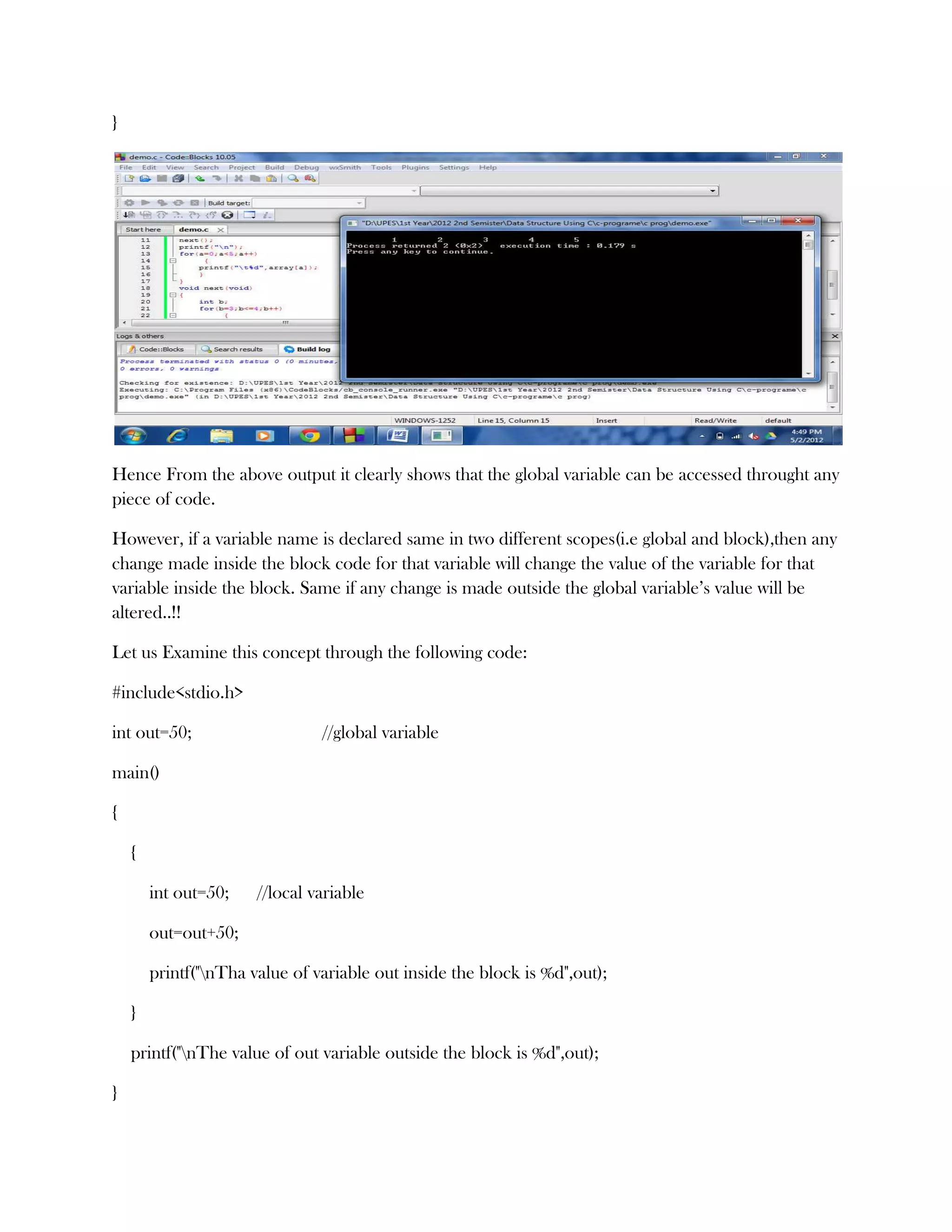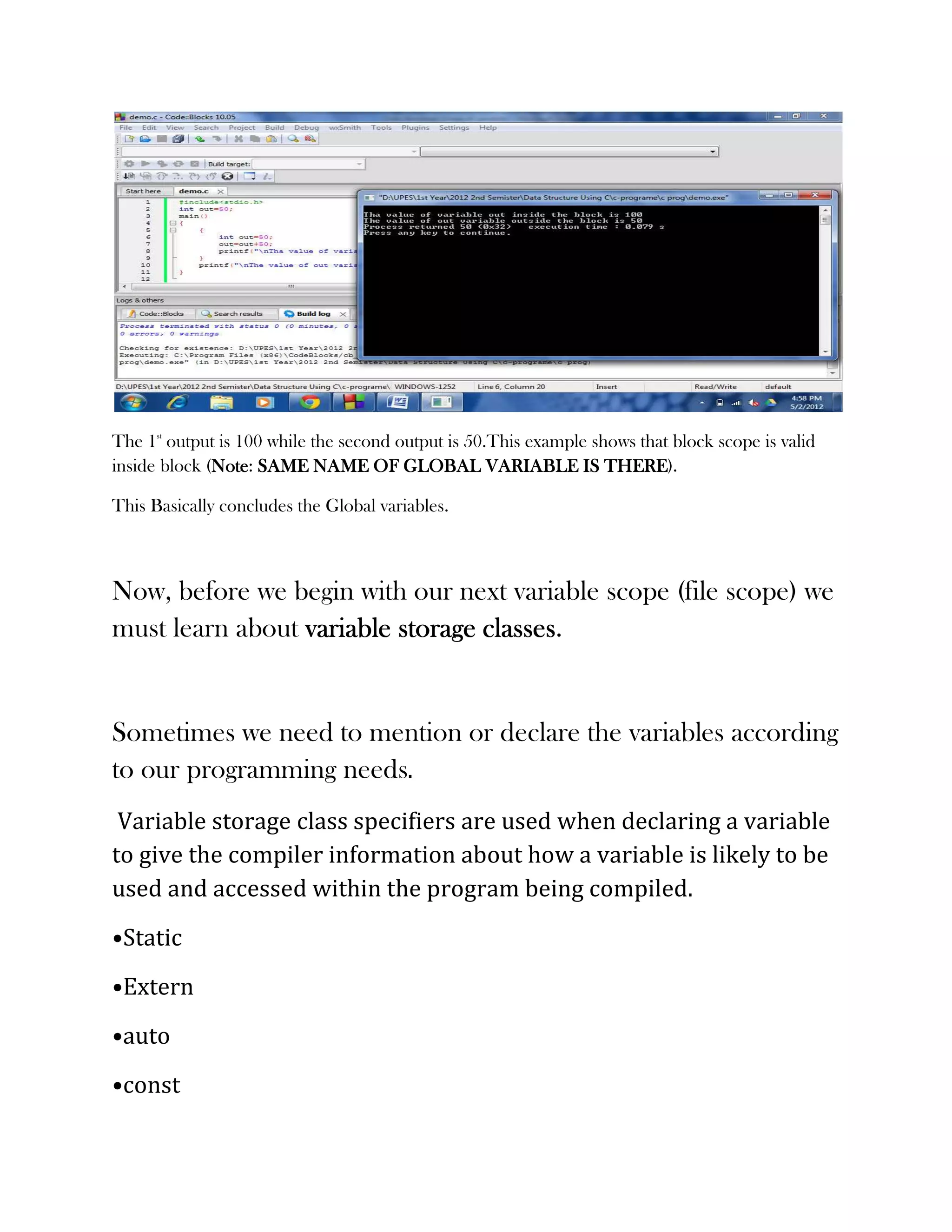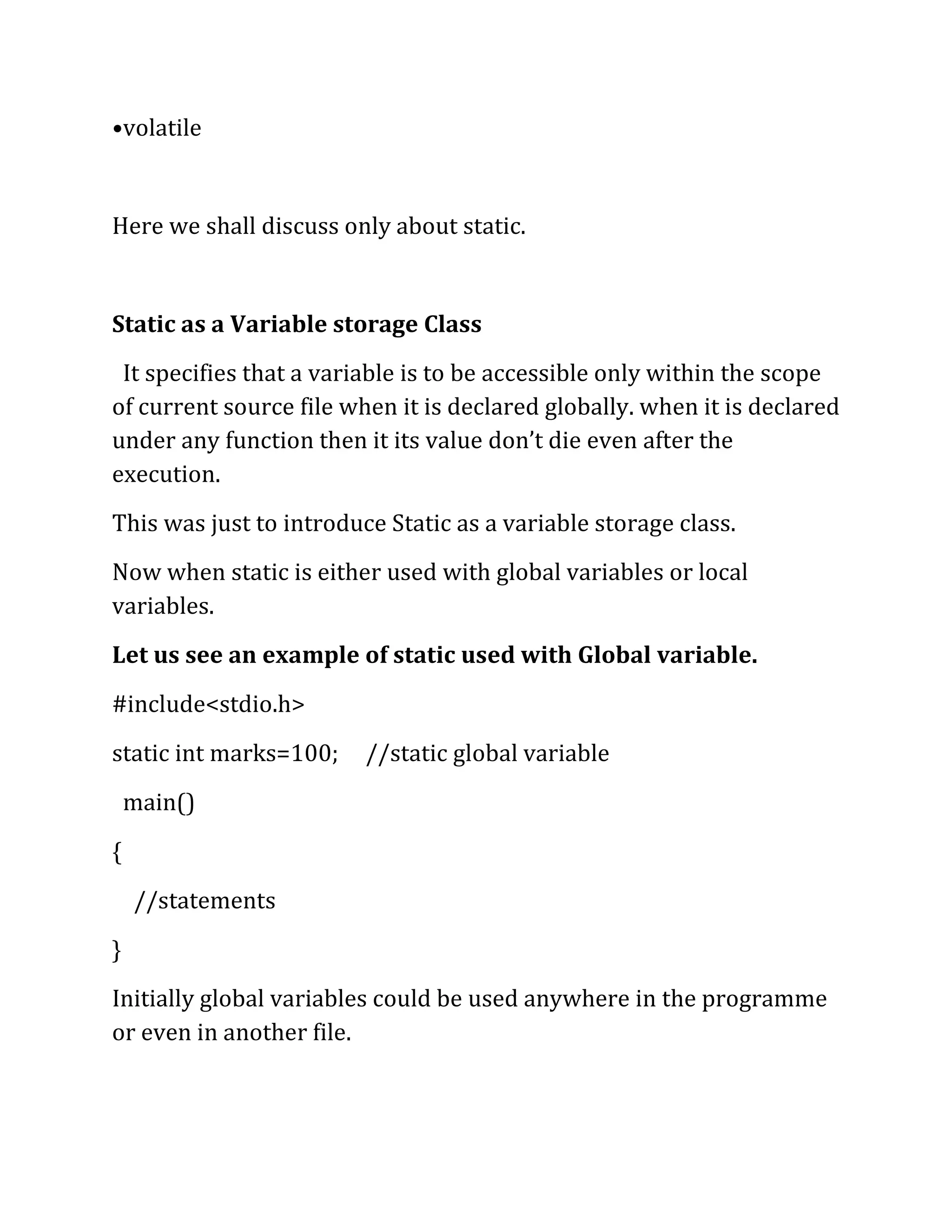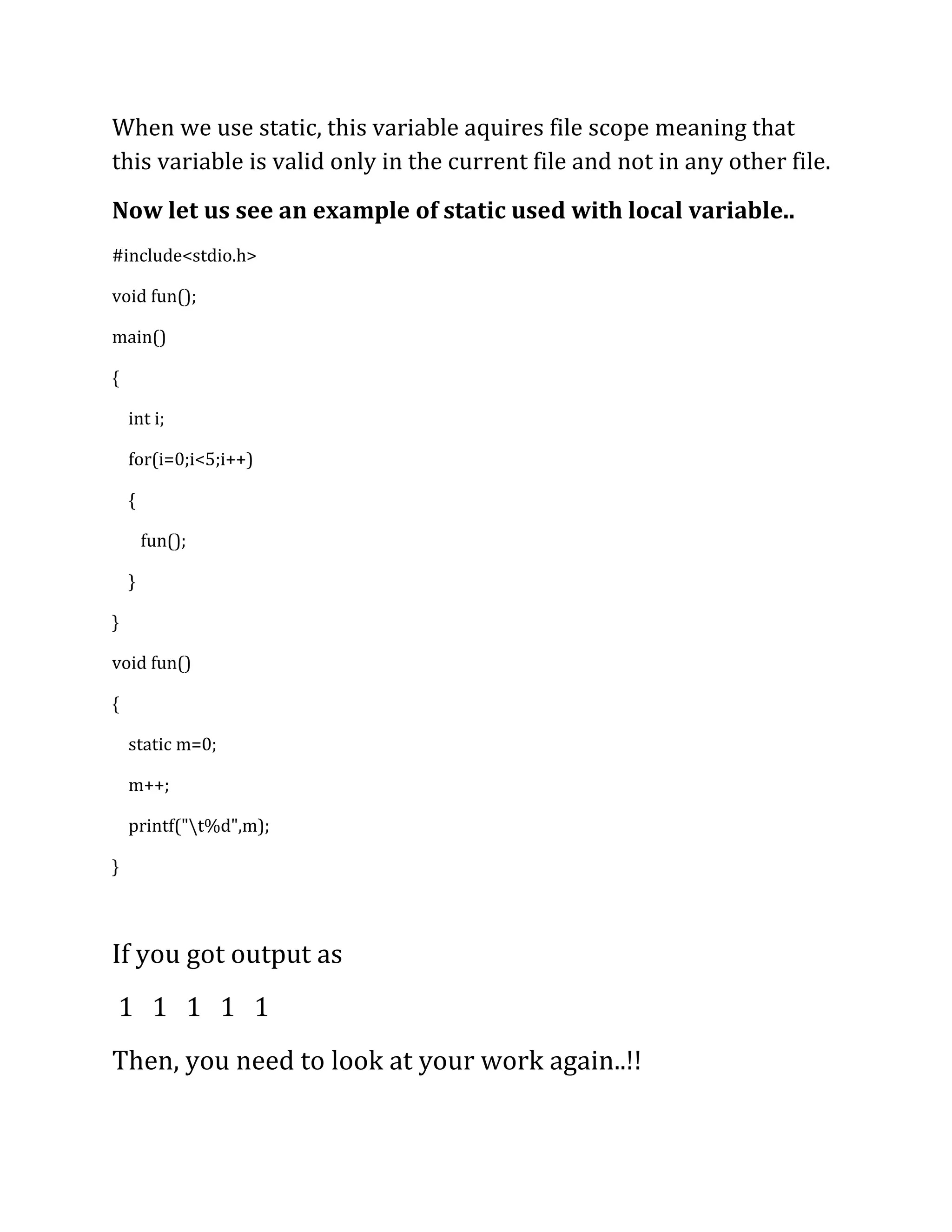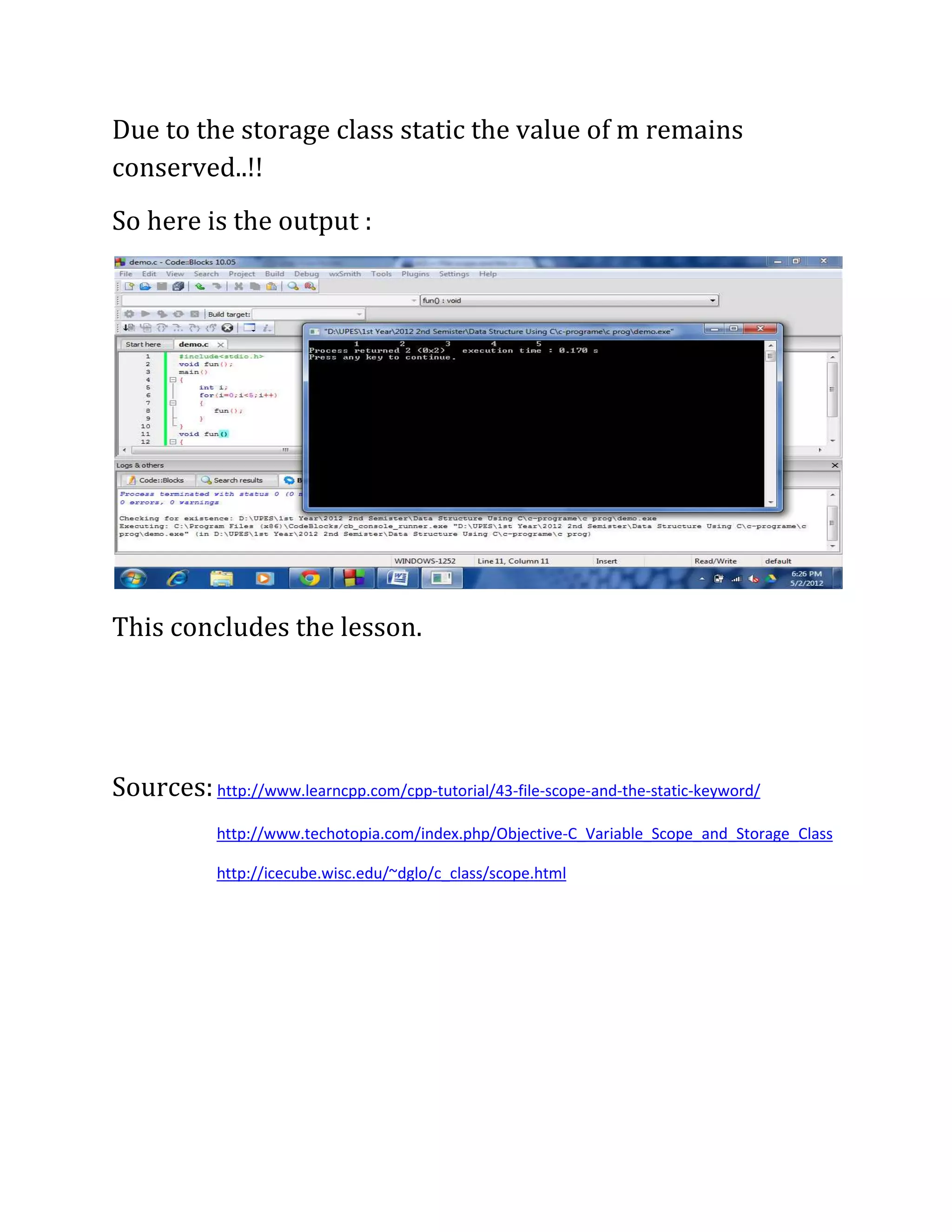The document discusses different types of variable scope in C programming:
1. Block scope - Variables declared within a code block using curly braces {} are only accessible within that block.
2. Function scope - Variables declared within a function are only accessible within that function.
3. Global scope - Variables declared outside of any block or function can be accessed from anywhere in the program file.
4. File scope - Variables can be declared with the static keyword to limit their scope to the current source code file. The static keyword also prevents local variables from being destroyed after the block or function ends.
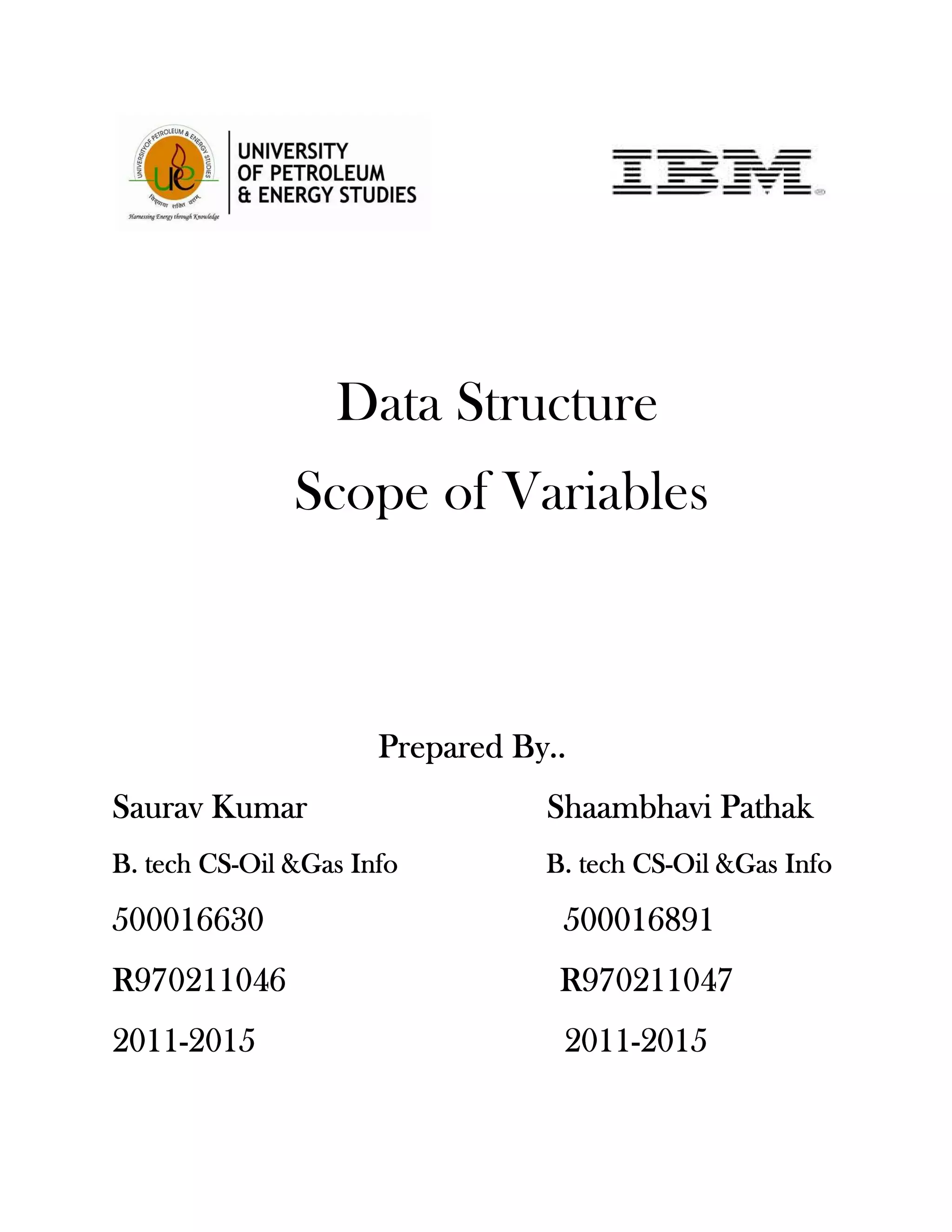
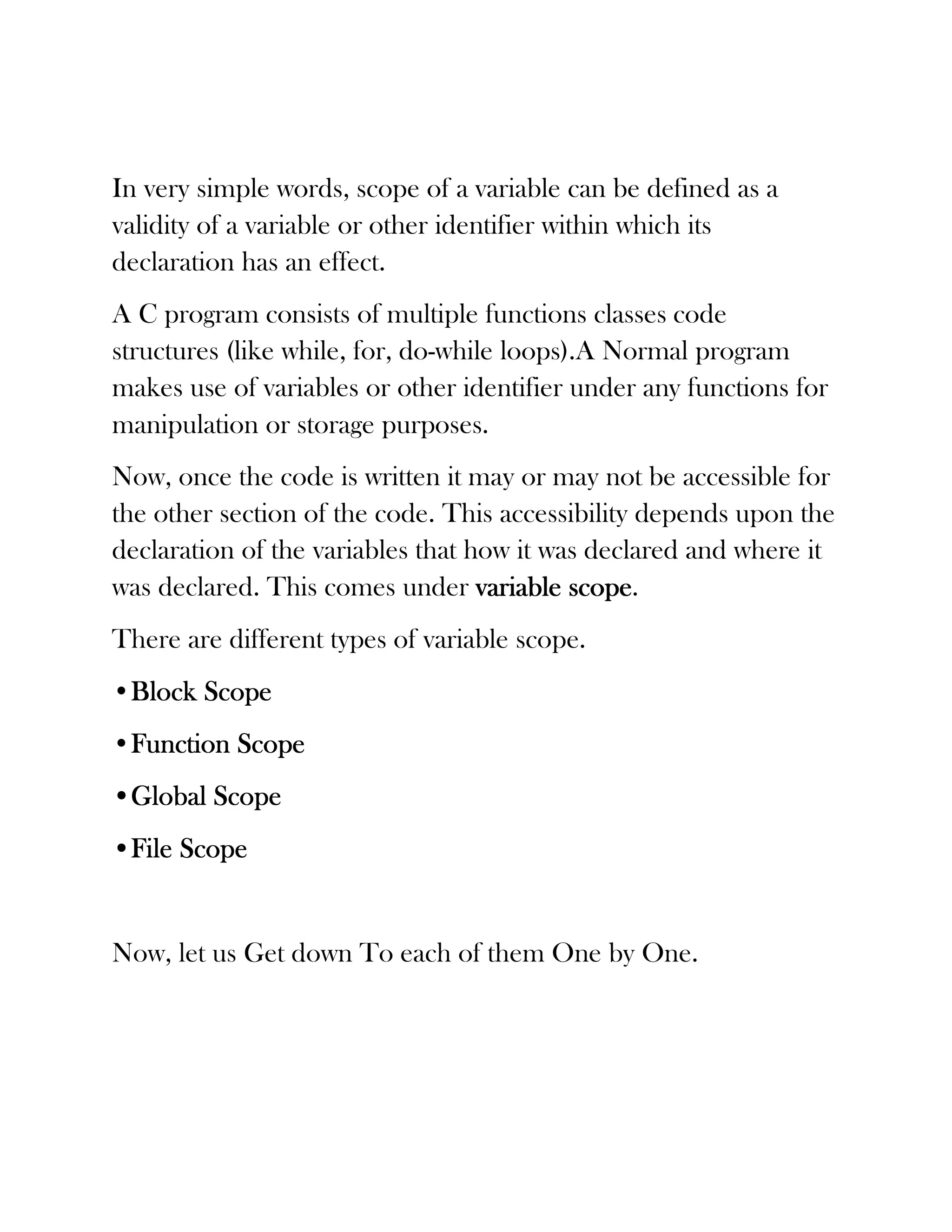
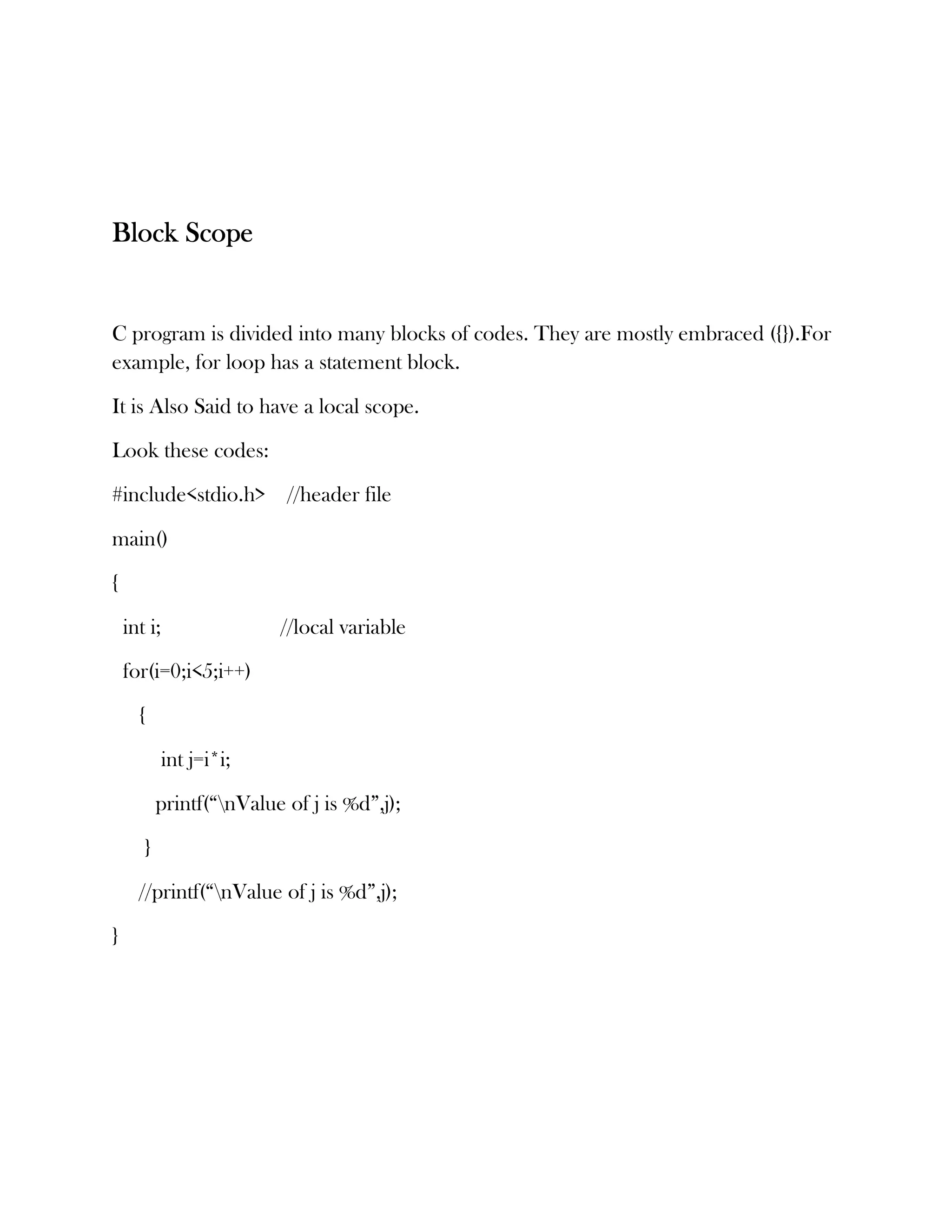
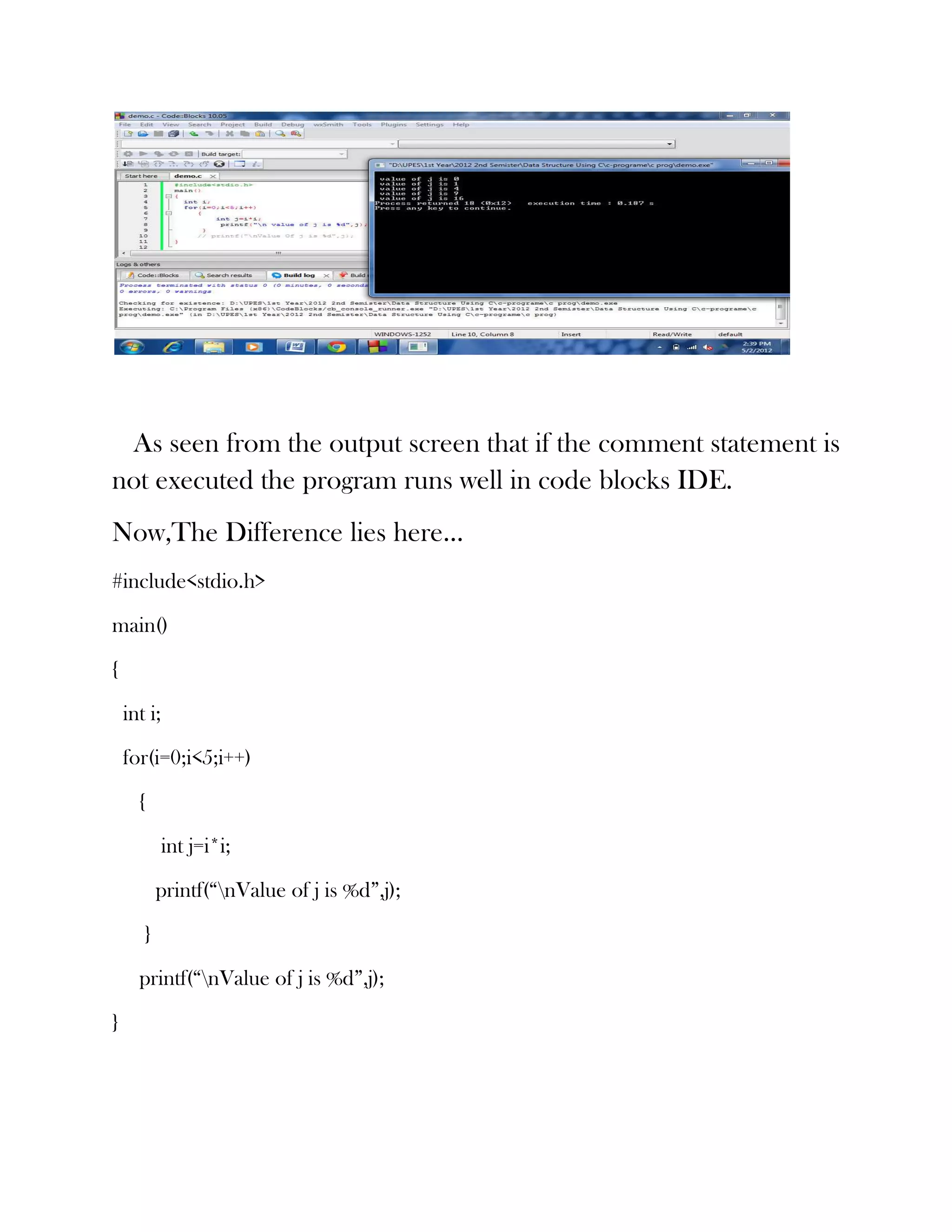
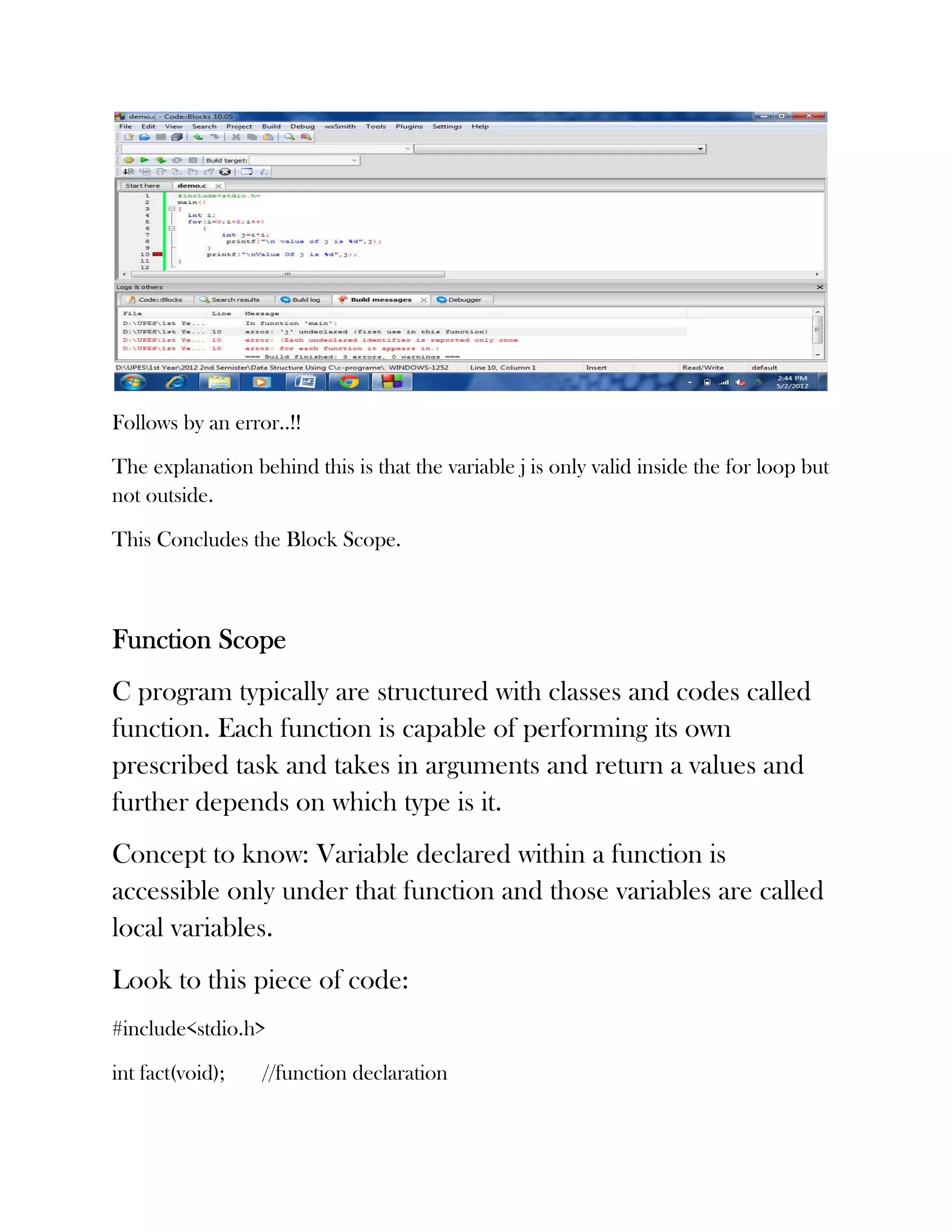
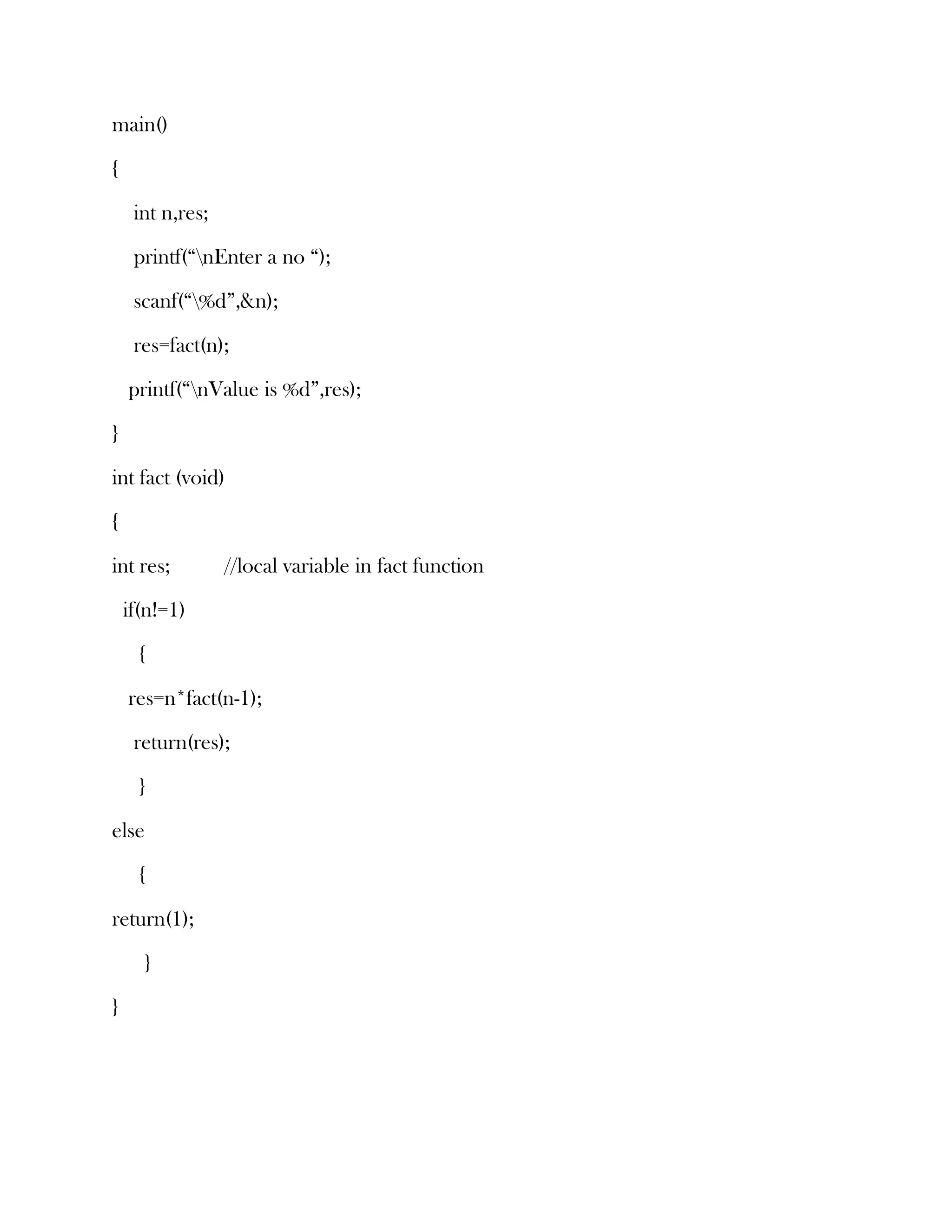
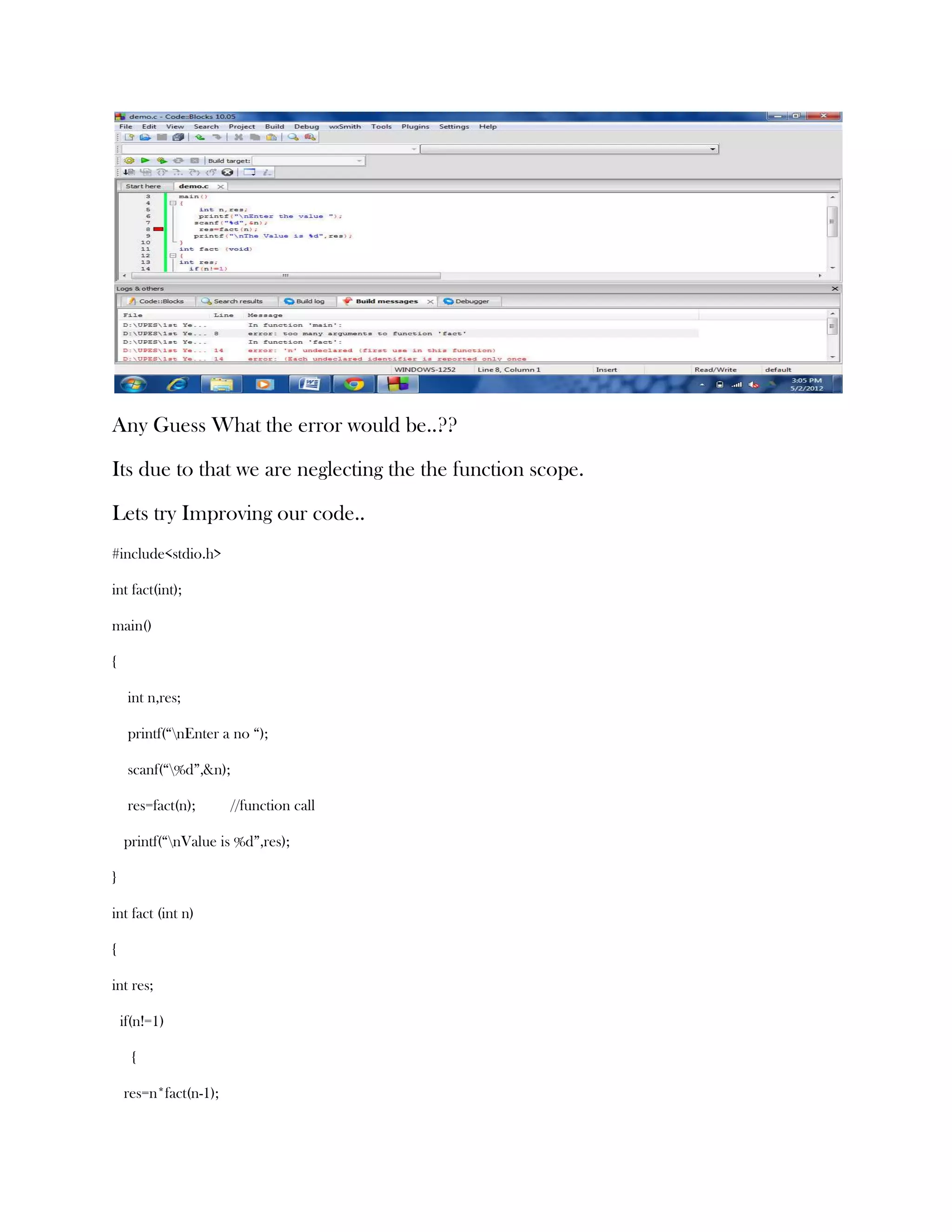
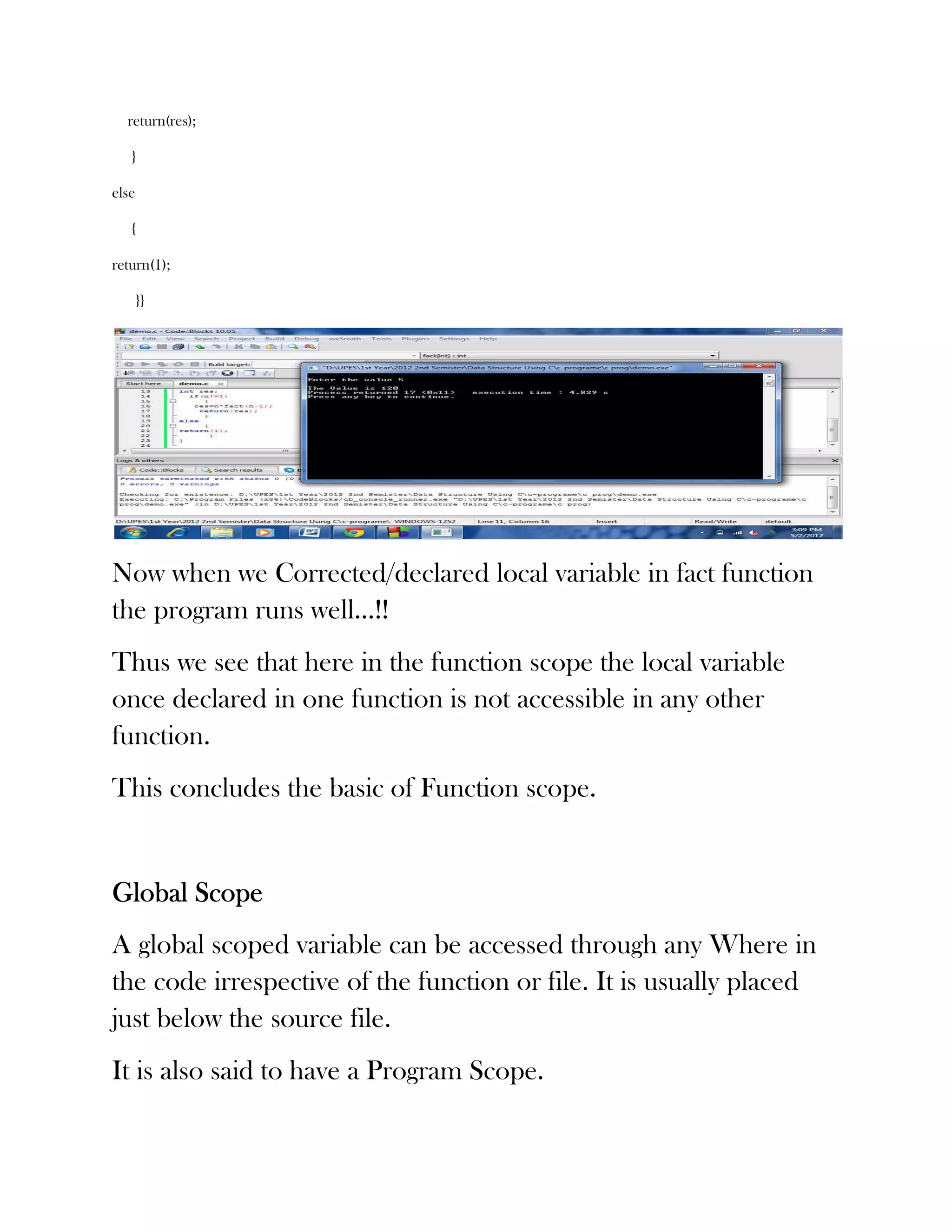
![Let us examine this code:
#include<stdio.h>
int array[5]; //global array declaration
void next(void); //function declaration
main()
{
int a;
for(a=0;a<=2;a++)
{
array[a]=a+1; //inserting values in globally created array
}
next(); //function call
printf(“n”);
for(a=0;a<5;a++) //loop for printing the stroed values in the array
{
printf(“t%d”,array[a]);
}
}
void next(void)
{
int b;
for(b=3;b<=4;b++)
{
array[b]=b+1;
}](https://image.slidesharecdn.com/datastructurescopeofvariables-130220223758-phpapp01/75/Data-structure-scope-of-variables-9-2048.jpg)
